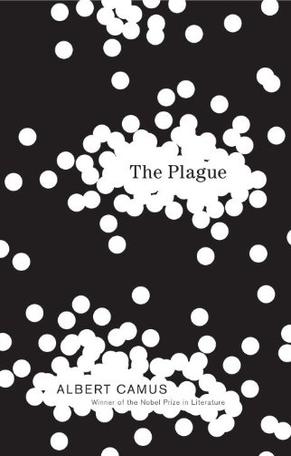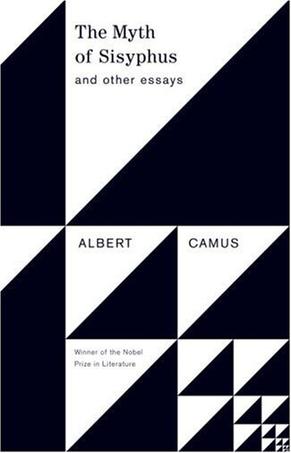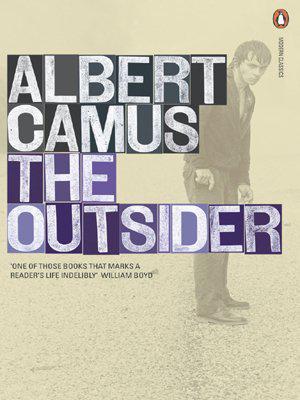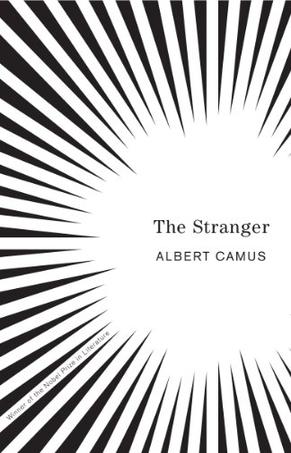欢迎来到相识电子书!
标签:AlbertCamus
-
反抗者
人們有權享有的幸福,靠反抗才能獲得; 轉身反抗不公不義,你才由奴隸變成自己! 「在荒謬經驗中,痛苦是個體的; 一旦產生反抗,痛苦就是集體的,是大家共同承擔的遭遇。 反抗,讓人擺脫孤獨狀態,奠定人類首要價值的共通點。 我反抗,故我們存在。」 ——卡繆 卡繆常被認為是提倡荒謬思想的大師,但這種簡化的描述只搆得到卡繆的創作初期。這位成長於兩次世界大戰間的文學大師,面對世界劇烈變動的景況,無可避免地去探究為何文明的發展卻帶來了巨大的破壞。他的作品《異鄉人》及《薛西弗斯的神話》思索個人面對生命的處境,因理想和現實的落差造成了荒謬感,以及個人如何面對這種荒謬。對人世充滿熱情的卡繆並不滿足於此階段的答案,他接著更進一步去討論,從個人進到與他人的關係、人類群體社會時,該又如何面對群體生命的挑戰,是更入世、更社會性的思考。 《反抗者》是卡繆處理個人與社會群體關係的重要著作,思考著人類社會巨大的難題: 人要脫離被奴役的身分,便必須反抗,被逼迫到一條界限時,要站出來說「不」。 如果為了反抗不義,是不是可以用盡任何手段? 若為了遠大的目標,是不是就該犧牲一切,即使是必須殺人? 反抗與革命之後,如果建立起來的社會又形成另一種壓迫專橫,該如何解決這難題? 這是卡繆處理對二十世紀巨大的法西斯政權和共產主義專政的思索,特別是後者一度被認為是人類未來社會的希望,在卡繆的時代許多思想家都熱烈擁護,但現實卻證明其墮落,如同卡繆所說的陷入虛無主義的毀滅。而從二十世紀後半的冷戰到今日,人類社會的挑戰還是籠罩在卡繆的這個思辨裡,只是當下盤據人類社會上空的權力幽靈,從政治權力轉為力量更加綿密無孔不入的經濟政治綜合體,帝國的勢力時時刻刻影響我們的生活。從專制體制紓解出來不久的人們,脫離了政治力的箝制,卻又面對了更嚴峻的考驗。 為此,思索反抗對當代的我們更形重要,如何反抗但卻不致於形成全面毀滅的虛無,或者避免反抗之後卻建立起另一座牢籠。 卡繆的推敲是我們不可或缺的永恆提醒。 -
The Outsider
In his classic existentialist novel, Camus explores the predicament of the individual who is prepared to face the benign indifference of the universe courageously and alone. -
The Plague
A haunting tale of human resilience in the face of unrelieved horror, Camus' novel about a bubonic plague ravaging the people of a North African coastal town is a classic of twentieth-century literature. -
異鄉人<新潮文庫265>
一九四零年六月,納粹軍鐵蹄蹂躝橫掃巴黎。卡繆潛入巴黎,在「戰鬥」組織內成為反抗極權的地下份子。「異鄉人」完成於此年,隔了兩年由迦里瑪爾書店出版,甫一問世,立即轟動。卡繆自此聲名大噪,與沙特同為法國文壇不朽的兩顆明星。 「異鄉人」記述一個僑居阿爾及爾的法國青年莫梭在灼熱的海灘槍殺了一個阿拉伯人。但由於出事前,他的母親死在養老院裡。莫梭在其母埋葬的翌日,即前往海濱,並與女友瑪莉發生關係。法院即根據他在亡母靈前的冷漠及後來遊蕩的行蹤,判斷他本性惡劣,宣判他的死刑,莫梭由於覺得人生苦悶乏味,無法肯定其生存的價值,所以,在法庭上並不熱心為自己辯護。莫梭在獄中等待上斷頭台的日子,為了減低寂寞的感覺,他甚至希望行刑的那一天,有一大群民眾來看熱鬧,共以咒罵的怒吼,歡送他歸去。 -
The Outsider
世界是荒谬的,那些意识不到荒谬的人让世界变得更加荒谬。然而诚如加缪所言:“意识到这个世界的荒诞并不是我们的终点,它只是一个起点。”就让我们一起到20世纪传世之作《局外人》中去寻找发现终点的线索吧。 -
The Stranger
The Stranger is not merely one of the most widely read novels of the 20th century, but one of the books likely to outlive it. Written in 1946, Camus's compelling and troubling tale of a disaffected, apparently amoral young man has earned a durable popularity (and remains a staple of U.S. high school literature courses) in part because it reveals so vividly the anxieties of its time. Alienation, the fear of anonymity, spiritual doubt--all could have been given a purely modern inflection in the hands of a lesser talent than Camus, who won the Nobel Prize in 1957 and was noted for his existentialist aesthetic. The remarkable trick of The Stranger, however, is that it's not mired in period philosophy. The plot is simple. A young Algerian, Meursault, afflicted with a sort of aimless inertia, becomes embroiled in the petty intrigues of a local pimp and, somewhat inexplicably, ends up killing a man. Once he's imprisoned and eventually brought to trial, his crime, it becomes apparent, is not so much the arguably defensible murder he has committed as it is his deficient character. The trial's proceedings are absurd, a parsing of incidental trivialities--that Meursault, for instance, seemed unmoved by his own mother's death and then attended a comic movie the evening after her funeral are two ostensibly damning facts--so that the eventual sentence the jury issues is both ridiculous and inevitable. Meursault remains a cipher nearly to the story's end--dispassionate, clinical, disengaged from his own emotions. "She wanted to know if I loved her," he says of his girlfriend. "I answered the same way I had the last time, that it didn't mean anything but that I probably didn't." There's a latent ominousness in such observations, a sense that devotion is nothing more than self-delusion. It's undoubtedly true that Meursault exhibits an extreme of resignation; however, his confrontation with "the gentle indifference of the world" remains as compelling as it was when Camus first recounted it. --Ben Guterson From Library Journal The new translation of Camus's classic is a cultural event; the translation of Cocteau's diary is a literary event. Both translations are superb, but Ward's will affect a naturalized narrative, while Browner's will strengthen Cocteau's reemerging critical standing. Since 1946 untold thousands of American students have read a broadly interpretative, albeit beautifully crafted British Stranger . Such readers have closed Part I on "door of undoing" and Part II on "howls of execration." Now with the domestications pruned away from the text, students will be as close to the original as another language will allow: "door of unhappiness" and "cries of hate." Browner has no need to "write-over" another translation. With Cocteau's reputation chiefly as a cineaste until recently, he has been read in French or not at all. Further, the essay puts a translator under less pressure to normalize for readers' expectations. Both translations show the current trend to stay closer to the original. Marilyn Gaddis Rose, SUNY at Binghamton Copyright 1988 Reed Business Information, Inc. --This text refers to the Hardcover edition. Review “The Stranger is a strikingly modern text and Matthew Ward’s translation will enable readers to appreciate why Camus’s stoical anti-hero and devious narrator remains one of the key expressions of a postwar Western malaise, and one of the cleverest exponents of a literature of ambiguity.” –from the Introduction by Peter Dunwoodie From the Hardcover edition. Description Through the story of an ordinary man unwittingly drawn into a senseless murder on an Algerian beach, Camus explored what he termed "the nakedness of man faced with the absurd." First published in 1946; now in a new translation by Matthew Ward. Language Notes Text: English (translation) Original Language: French From the Inside Flap Through the story of an ordinary man unwittingly drawn into a senseless murder on an Algerian beach, Camus explored what he termed "the nakedness of man faced with the absurd." First published in 1946; now in a new translation by Matthew Ward.
热门标签
下载排行榜
- 1 梦的解析:最佳译本
- 2 李鸿章全传
- 3 淡定的智慧
- 4 心理操控术
- 5 哈佛口才课
- 6 俗世奇人
- 7 日瓦戈医生
- 8 笑死你的逻辑学
- 9 历史老师没教过的历史
- 10 1分钟和陌生人成为朋友







